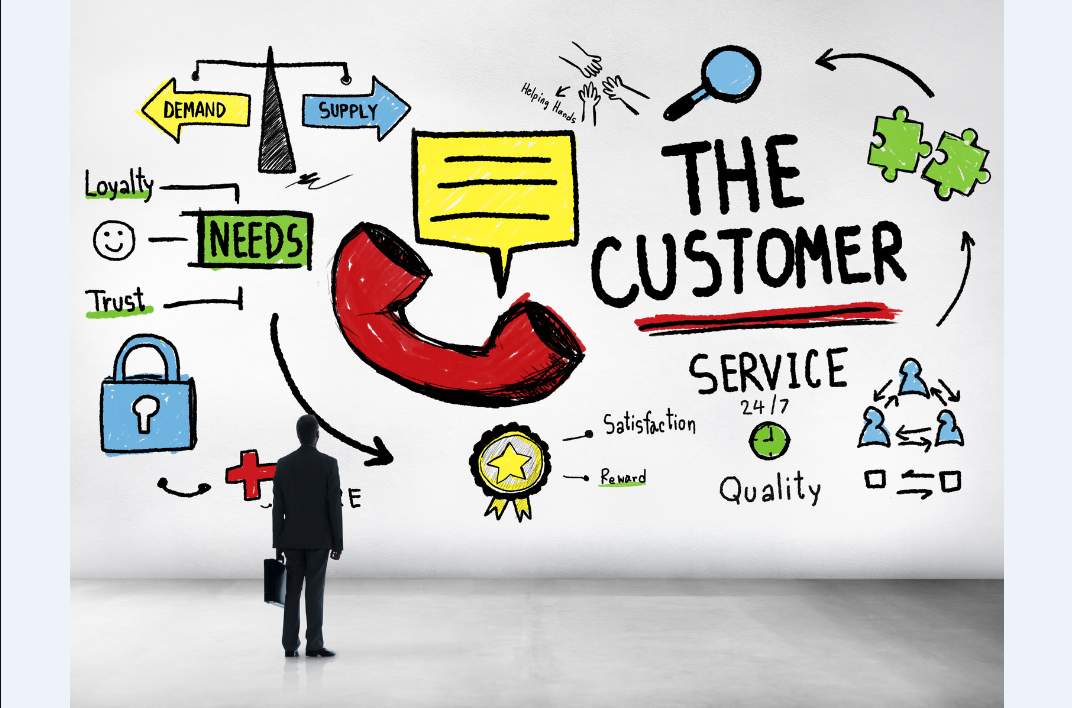As the first point of ‘direct’ contact for telco customers, customer care agents are very important to customer acquisition and retention and conflict resolution. The efficiency (or inefficiency) of a telcos’ customer care force can directly impact how quickly, or slowly, a telco grows its subscriber base. Bottomline: Customer care agents are important.
In Nigeria, telcos typically hire customer care agents directly on a contract or outsource call center operations to a third party vendor. Depending on the size of the telco, it may have a mix of both direct contract hires and third-party operated call centers.
Interestingly, there is no information on what the work conditions of these people look like (NDA?). So, I spoke to some customer care agents of a leading Nigerian telco (which I’m not going to name per my sources’ request) and spoiler: it’s a bit of a mixed bag.
Work environment
According to my sources, the work environment is decent and pretty straight forward. Teams are allocated work tables that have individual workstations each equipped with a computer and telephone. No one person owns a work space though and the computers can be used by agents in the next shift.
Each team typically has around 15 people and my sources estimate that there are roughly 25 teams in total (so ~375 people work at this particular center). Also, the telcos mainland customer care agent building in the heart of the Lagos Mainland can hold 2000 people at any given time (the telco used to employ that many agents per center before cutting down to cut costs. Also, the telco has not hired any new agents in two years).
There are three shift times: Morning (7AM – 2PM), afternoon (2PM – 9PM) and night (9PM – 7AM). Each of the morning and afternoon shifts have fifty-minute scheduled breaks (split into two) while the night shift gets an hour and five minutes (also split in two).
Reporting structure
Agents – Team Leads – Supervisors – Heads of Department – Director – Company CEO. Note that this may not apply to vendor led customer care centers.
KPIs
My sources told me that deliverables for them daily (or per shift) was schedule adherence (how well they stick to the shift structure in place), quality assurance (how well they respond to/handle customer queries), knowledge assessment (how knowledgeable they are about customer complaints and how to solve them), telemarketing (marketing the telcos’ products over the phone), productivity (how many customer complaints they successfully resolve vs how many customer calls they drop), documentation of interactions (how well they document their interactions with each customer).
What do queries look like?
According to one source, “Queries are in form of questions. Your crime is stated then you reply. Then depending on the crime, you could be given a memo or you could face a panel who will interrogate you then your punishment will now be dished.”
What gets you fired?
My sources tell me there are three main reasons people get fired. Fraud is one, being “outrightly (insanely)” rude to a customer is another and finally, being absent from work without reason or communication rounds out the list. None of my sources reported any arbitrary sackings though.
How much do they earn?
This is perhaps the most sour part of working for a Nigerian telco as a customer care agent. My sources (half of whom are women) told me they all earned N50K monthly as salary (some have been stuck on that salary for as long as four years). “It’s not just us too. All the other CCRs at other telcos are grossly underpaid too – especially if they work for the telco through a vendor. Our own is even better since its direct,” one of them told me.
Benefits
Agents are entitled to 25 days leave in a year, according to my sources. They can go on leave at any time supposing there is only one other person on leave on their team on the day they choose to. In other words, no more than two people can go on leave at the same time within a team.
There are no holidays, but the agents that work on public holidays are paid overtime, according to one source. They also get health insurance and a couple of my sources told me the health package is “very good, to be honest”.
Other Perks
Agents get quarterly individual performance-based bonuses. For example, an agent who is performing really well will get a bigger bonus than another agent who isn’t doing as well.
“There is a staff bus that picks and drops agents at designated bus stops for all the shifts even night,” one of my sources told me. Other agents corroborated this.
Growth trajectory
Another sour spot is growth within the organization – which is basically non-existent. In the words of one of my sources, “There is little or no promotion … you die as a call center agent.
The agents that spoke to me did seem to like the skills they had learnt on the job however, they didn’t like the pay and lack of growth opportunities. One agent told me that he was only doing the job because he had no other choice. Another, a younger agent, said she didn’t mind the job, just as long as the pay was improved. One thing they all seemed to agree on though was that agents who work with vendors had a much worse deal than they did.




















